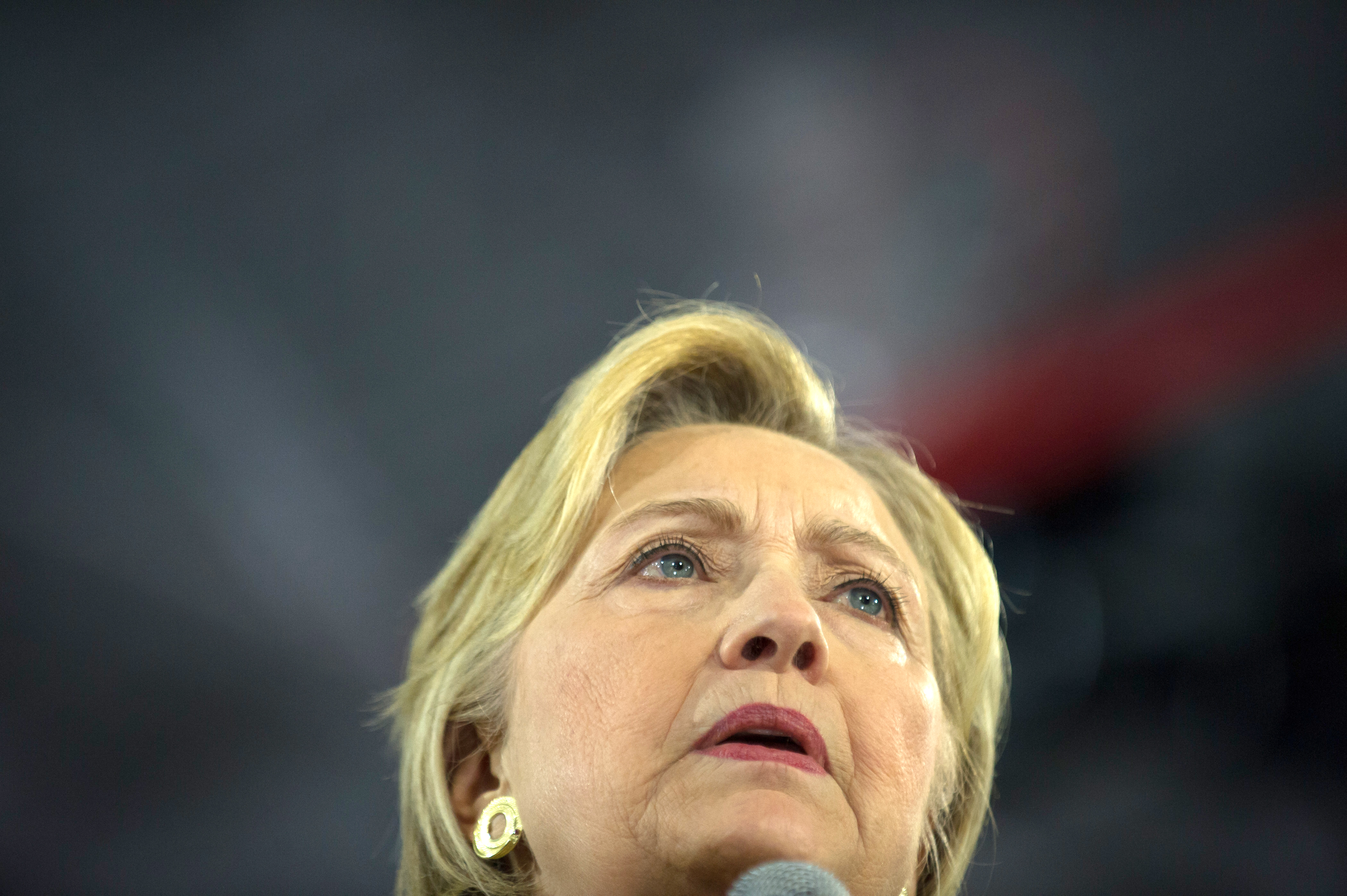Hillary Clinton's latest email excuse amounts to 'I'm an idiot'
"C" is for confidential!


A free daily email with the biggest news stories of the day – and the best features from TheWeek.com
You are now subscribed
Your newsletter sign-up was successful
When James Comey concluded the FBI's probe into Hillary Clinton's private email server with a recommendation that the Department of Justice take no further action, the FBI director said he could not establish an intent to break the law, and later told Congress that the former secretary of state had cooperated truthfully during her interview. After members of Congress had an opportunity to see the FBI's case file on their investigation, a number of them vehemently disagreed. Thanks to a typical Beltway document dump — perfectly timed for the Friday afternoon of a long holiday weekend — the rest of us can now see why.
In the FBI's heavily redacted interview notes with Clinton, the Democratic nominee insisted that she didn't know of classified emails' classification — even when the material had markings denoting their classification level.
"When asked about the email chain containing '(C)' portion markings that State determined to currently contain CONFIDENTIAL information," the report relates, "Clinton stated that she did not know what the '(C)' meant at the beginning of paragraphs." Clinton "speculated it was referencing paragraphs marked in alphabetical order."
The Week
Escape your echo chamber. Get the facts behind the news, plus analysis from multiple perspectives.

Sign up for The Week's Free Newsletters
From our morning news briefing to a weekly Good News Newsletter, get the best of The Week delivered directly to your inbox.
From our morning news briefing to a weekly Good News Newsletter, get the best of The Week delivered directly to your inbox.
Anyone who has handled classified material would know this to be utter nonsense. Paragraph markings appear in all classified material to note the specific classifications within the sections of each page, while the page itself bears a marking of the highest classification information within it. Even without that knowledge, though, Clinton's explanation still makes no sense, because the alphabet doesn't start with C. If she legitimately wanted to employ this imbecilic alphabet defense, the follow-up question is obvious: "How could you think this if there was no (A) and (B)?"
Clinton's explanation of her ignorance tests credulity even further. "Clinton could not give an example of how classification of a document was determined," agents wrote, "nor could she recall any training or guidance provided by State." Had she gone from a lifetime in the private sector to becoming secretary of state, that explanation might hold up. However, not only did Clinton spend eight years in the White House in somewhat close proximity to sensitive material, she spent an equal amount of time in the U.S. Senate. In fact, Clinton spent six of those years on the Armed Services Committee, which routinely accesses highly classified material as part of the legislative branch's duty to oversee the operations of the executive branch.
Did agents ask her to reconcile that experience with her protestations of ignorance on classifications, originations, and markings? The FBI's interview notes show no evidence of that obvious follow-up. In fact, Clinton went even further by claiming that she "could not recall any briefing or training by State related to the retention of federal records or handling of classified material."
On that point, the FBI had clear evidence of deception. In a non-disclosure agreement dated Jan. 22, 2009, Clinton attested to having received a "security indoctrination concerning the nature and protection of classified information." That signature explicitly made Clinton "legally bound" to that testimony. Did investigators challenge her statement, or follow up on the potential perjury or obstruction ramifications? Apparently not.
A free daily email with the biggest news stories of the day – and the best features from TheWeek.com
Those documents, and the indoctrinations that precede them, impress upon clearance holders their responsibilities to know what is and is not classified, and to handle sensitive information properly. The onus falls on cleared personnel to discern what requires protection even when markings may be absent, let alone when they are present. Instead of pursuing that contradiction, the FBI swallowed one of the biggest whoppers of all. When asked whether a discussion of an upcoming covert operation should have prompted her to recognize the classified nature of the information, she told the FBI that "deliberation over a future drone strike did not give her cause for concern regarding classification."
It doesn't take von Clausewitz to know that discussions of military and intelligence operations require secrecy, especially covert operations such as the drone-strike program and its targets. To accept these answers at face value, one would have to consider Hillary Clinton an idiot, and especially dangerous if put in charge of the military as commander-in-chief.
Clearly, James Comey and the FBI heard what they wanted to hear so they could wash their hands of the gross negligence of Hillary Clinton in her responsibilities to protect the nation's secrets. That shouldn't let voters off the hook for keeping Clinton away from power, and away from doing even graver damage to national security.
Edward Morrissey has been writing about politics since 2003 in his blog, Captain's Quarters, and now writes for HotAir.com. His columns have appeared in the Washington Post, the New York Post, The New York Sun, the Washington Times, and other newspapers. Morrissey has a daily Internet talk show on politics and culture at Hot Air. Since 2004, Morrissey has had a weekend talk radio show in the Minneapolis/St. Paul area and often fills in as a guest on Salem Radio Network's nationally-syndicated shows. He lives in the Twin Cities area of Minnesota with his wife, son and daughter-in-law, and his two granddaughters. Morrissey's new book, GOING RED, will be published by Crown Forum on April 5, 2016.
